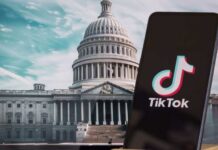
A recent tweet stormed through the digital landscape like a bull in a china shop. Allegedly penned by none other than the charismatic U.S. Representative Alexandria Ocasio-Cortez, it proposed a solution to the daunting national debt crisis that left the internet simultaneously scratching its head and clutching its sides in laughter.
The tweet? A seemingly flippant suggestion that the United States simply print a cool $34 trillion to wipe clean the slate of debt. It was an audacious proposal and perhaps somewhat believable, considering some of the things the New York congresswoman has said in the past. This satirical remark quickly garnered attention. Before long, the tweet had amassed an impressive 263,600 views and garnered 4,900 likes, transforming it from a mere blip on the radar into a full-fledged viral sensation. But beneath the layers of irony and humor lay a sobering undercurrent of concern.
Many people actually believed that the tweet came from AOC.
We should just print the 34 trillion dollars and pay off our national debt.
— AOC Press Release (parody) (@AOCpressTwo) February 14, 2024
Albeit, the source of this statement was not from AOC herself, but rather from a labeled parody account impersonating the congresswoman. Despite clear indications in the account handle, which specifies it as a parody, and prior clarifications from Ocasio-Cortez regarding the falsity of such accounts, the post’s satirical nature eluded many users. Perhaps the reason it eluded many was the fact that it did seem like something the New York congresswoman would have said.
Parody accounts seem to love AOC. One parody account took things a step further, implying that AOC had a crush on Elon Musk. When Musk, who was the CEO of Twitter at the time, reacted with a “fire” emoji to a tweet, even more people took notice. Musk’s interaction further fueled the circulation of the parody’s content. Notably, Musk’s account is the only account followed by this parody, which could potentially amplify its reach and influence.
After the introduction of an $8 per month verification feature by Twitter (now known as X) under the direction of its new owner, Musk, a surge of parody accounts masquerading as notable individuals and companies, complete with blue checkmarks, was observed. Among those affected were Eli Lilly and Company, Lockheed Martin, Roblox, and even Musk’s own Tesla.
These parody accounts have sparked public relations challenges for some entities and people like AOC. For instance, a verified account impersonating Eli Lilly, a pharmaceutical giant, posted a tweet on November 10 proclaiming, “We are excited to announce insulin is free now.” The tweet remained visible for three hours, accumulating 1,500 retweets and 10,000 likes. This is significant considering the high cost of insulin in the United States, which is ten times more expensive than in other developed countries, despite being a vital medication for over 7 million Americans managing diabetes. In response to the confusion caused by the tweet, Eli Lilly issued an apology and stated that they are actively working with Twitter to resolve the issue.
In light of these events, Musk has implemented a new requirement for parody accounts, mandating that they include the term “parody” in their names. Musk emphasized the importance of transparency, stating, “Basically, tricking people is not ok.”
In AOC’s case, both accounts did have the word parody. AOC took to X to address the issue herself. “FYI, there’s a fake account on here impersonating me and going viral. The Twitter CEO has engaged it, boosting visibility.” She also added that she was assessing the matter with her team on how to move forward and asked her viewers to be careful with what they were seeing.
FYI there’s a fake account on here impersonating me and going viral. The Twitter CEO has engaged it, boosting visibility.
It is releasing false policy statements and gaining spread.
I am assessing with my team how to move forward. In the meantime, be careful of what you see.
— Alexandria Ocasio-Cortez (@AOC) May 30, 2023
This incident highlights the challenges posed by the proliferation of parody accounts on social media platforms, particularly when they impersonate well-known entities.















